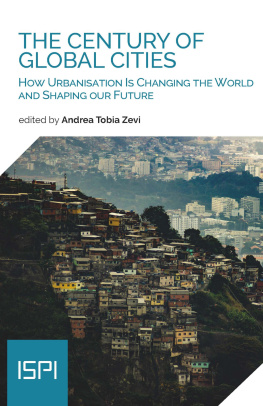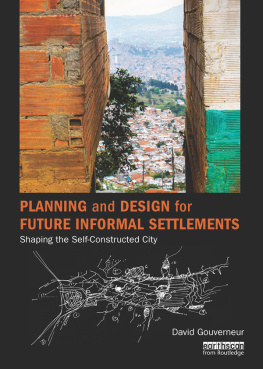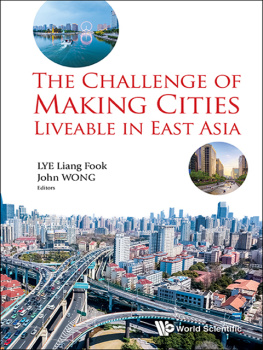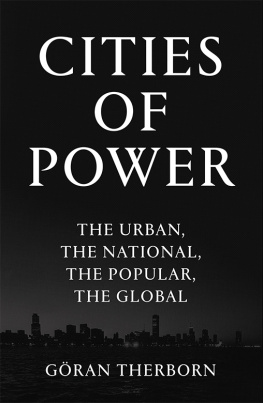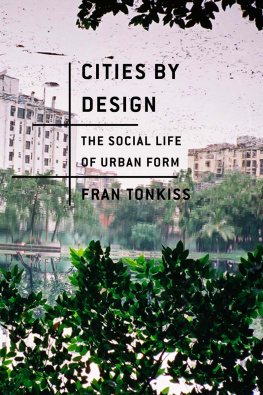2019 Ledizioni LediPublishing
Via Alamanni, 11 20141 Milano Italy
www.ledizioni.it
The Century of Global Cities. How Urbanisation Is Changing the World and Shaping our Future
Edited by Andrea Tobia Zevi
First edition: December 2019
The opinions expressed herein are strictly personal and do not necessarily reflect the position of ISPI.
Print ISBN 9788855260893
ePub ISBN 9788855260909
Pdf ISBN 9788855260916
DOI 10.14672/55260893
ISPI. Via Clerici, 5
20121, Milan
www.ispionline.it
Catalogue and reprints information: www.ledizioni.it
Introduction
Think tanks and research centres worldwide are devoting increasing attention to the growing role of global cities. Why do global cities matter? And why should a think tank dealing with international affairs such as ISPI look at the evolving role of global cities? The obvious answer is: because cities do matter. Urban settings cover barely 2% of the Earths surface, yet they host over half of the global population. In the coming decades, the number of mega-cities in Asia and Africa will grow dramatically, and this represents a huge challenge in terms of social and environmental sustainability. As urbanisation increases at a steady pace, cities are where most of the worlds GDP, greenhouse gas (GHG) emissions, and waste are produced. Global cities, metropolises acting as key hubs in global economic and political networks, matter even more.
A growing number of phenomena requiring international coordination and response are closely related to developments at the city level. Cities tend to be the places that are most impacted by issues such as climate change and migration. Given their size and political and economic relevance, cities are also the actors that affect these phenomena the most, for better or for worse: what happens in cities has repercussions at the national and international level. Besides, cities are testing grounds for most policy innovations, which can then spread to higher levels of government, thus shaping present and future developments of internationally-relevant phenomena. At the same time, they are stages for political experiments and trends that often spill over into other cities and countries. To use a medical analogy: global cities are the patient, the disease, the treatment, and the laboratory, all at once.
As a result, the international community decided to devote to cities a specific Goal within the Sustainable Development Agenda approved at the end of 2015: Make cities and human settlements inclusive, safe, resilient and sustainable (Goal no. 11). We should not take this for granted, since cities were not considered in the previous international targets, which were set at the beginning of the century. Some prominent global cities, starting with New York City (and now Buenos Aires, Durban, Helsinki, Kitakyshu, Los Angeles, Medellin, Pittsburgh, Rio de Janeiro, and others) , are already moving forward. They replace states in implementing the Agenda and tackling the problems: through their Voluntary Local Review, which is supposed to mirror the National Review that each nation should release every year, they testify their strong commitment to addressing the major challenges of our era.
This correlation between global phenomena and developments at the city level is crystal clear in three major fields. First, global cities matter for international economy. A countrys economic power is increasingly linked to the power of its cities especially the largest ones. At the same time, to grow stronger cities need constant investment in infrastructure, and this in turn requires economic growth. This virtuous circle can either be kick-started at the city level, or stop there. As cities boost trade and tourism, they also offer a window on local culture, hence bolstering not only the hard power of a country, but also its soft power on the world stage.
Second, global cities matter for climate change. Cities are the places that are most affected by climate change, in particular by rising sea levels or extreme weather conditions (such as heat waves or cold snaps). They produce the largest share of GHG emissions, but the economies of scale cities offer have the potential to limit such emissions over the longer term. Solutions devised by city managers can be at the cutting edge of technological development, opening up new pathways for mitigating climate change or adapting to it.
Third, global cities matter for international migration. Internal and international migrants flock to cities, so the lack of international rules governing migration affects cities the most. At the same time, many cities tendencies to confine newcomers to their peripheries can heighten the migrants sense of exclusion, which can further complicate their integration in host countries. Yet cities also serve as laboratories for inclusion, as shown by US sanctuary cities, in which foreigners have managed to thrive despite a more hostile broader environment.
This Report investigates these and other fields where dynamics at the city level ripple through the international level and vice versa. It also shows how global cities are often taking over responsibilities on behalf of their national governments, addressing challenges autonomously or even in opposition to national decisions. This is a crucial development, but it is a double-edged sword, because as cities act more independently, governments may find it harder to regulate and sanction rogue behaviour.
A few years ago, New York-based scholar Benjamin Barber suggested that mayors should rule the world. More modestly, global cities and their managers should be seen as pragmatic and accountable solution providers. In this respect, it is reasonable to expect that cities and their networks will claim a more central role in the future as they become willing to influence the political process of decision-making within the international community. In one word, they will try to get a seat at the table. This looks like an interesting development and a great opportunity for the future.
1. Why Global Cities? *
Saskia Sassen
The 1980s marks a very specific economic transformation in major western cities. It was, in many ways, the beginning of a new era, one that saw digitisation as having the capacity to launch foundational transformations. One key transformation many experts asserted would be decisive, was that cities would no longer matter for the advanced economy. Cities might still matter for people who wanted to go to the theater and such, but they would not matter much for the advanced economy. There was great conviction that powerful firms, global firms, and such would no longer need cities given the digital revolution.
This turned out to be mostly wrong. Cities have become even more important, and this is especially so for the most advanced and digitally enabled/connected sectors. Why? Because time began to matter even more fractions of seconds mattered. And they mattered precisely because of the digital revolution: now competition was everywhere, accessing the latest innovations could be executed by anyone, and so on.

